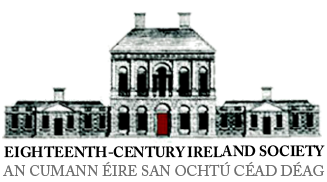I am a PhD candidate at the University of Sydney, Australia.My research focus is on the concept of charity as reflected in the writings of John Donne and Jonathan Swift, and more generally the intersection of religion, law and literature in Anglophone cultures of the seventeenth and early eighteenth centuries.
Favourite archive:
I'm hoping to find a favourite archive in Ireland! Visiting the library at Trinity College in Dublin is a must-do, but I've also heard very good things about Marsh's Library.
Favourite gallery/museum/heritage centre:
I love the Friends Room at the State Library of New South Wales. It is a little oasis of calm in the midst of the busyness of Sydney. A perfect place to sit and read.
Most exciting place/time period in the 18th century:
Revolutionary France in the 1790s was quite transformative for the world (but it would be exciting and terrifying in equal measure!).
Best online resource for 18th century:
I'm returning to scholarship after twenty years doing other things, so have been amazed by what is now available online. I tend to use OUP Academic Online most frequently.
Best book/history of 18th-century interest:
Gulliver's Travels. It really is a tale that keeps on giving! You can read it at different ages and stages of your life and always find something new or curious in its pages.
What eighteenth-century figure would you most like to have a drink with?
Maybe not Swift, I would feel a little intimidated by him! I do like the idea of chatting to William Wilberforce, who by all accounts was a thoroughly decent human.
What will you be talking about at the ECIS Annual Conference?
My doctoral thesis considers the inter-relationship between John Donne's and Jonathan Swift's sermonic and other writings through the conceptual lens of Christian charity.
I view charity's presence and prominence in both Donne's and Swift's work―particularly in its adjectival form, 'charitable'―as suggestive of it being a perennial concept, recurrent in literature, which resists periodization. This is a different, if not wholly oppositional, perspective to that expressed in recent early modern scholarship, which has tended to emphasise charity's linguistic properties as a polysemic and evolving word.
At the upcoming ECIS conference, I will be focusing on Swift's understanding of charity in A Proposal for Giving Badges to Beggars. This text has at times been offered as proof of Swift holding beliefs that are the very antithesis of Christianity. However, Swift's views about the unsanctioned poor―beggars whom he perceives as lacking 'a proper Title to our Charity'―are actually similar in some surprising respects to those expressed by Donne, over a century before.
Whether Donne and Swift are exceptionally aligned on the specific issue of begging, or evince some broader, potentially unacknowledged continuity when it comes to the practice of charity, is a question that I am looking forward to exploring in Galway.

